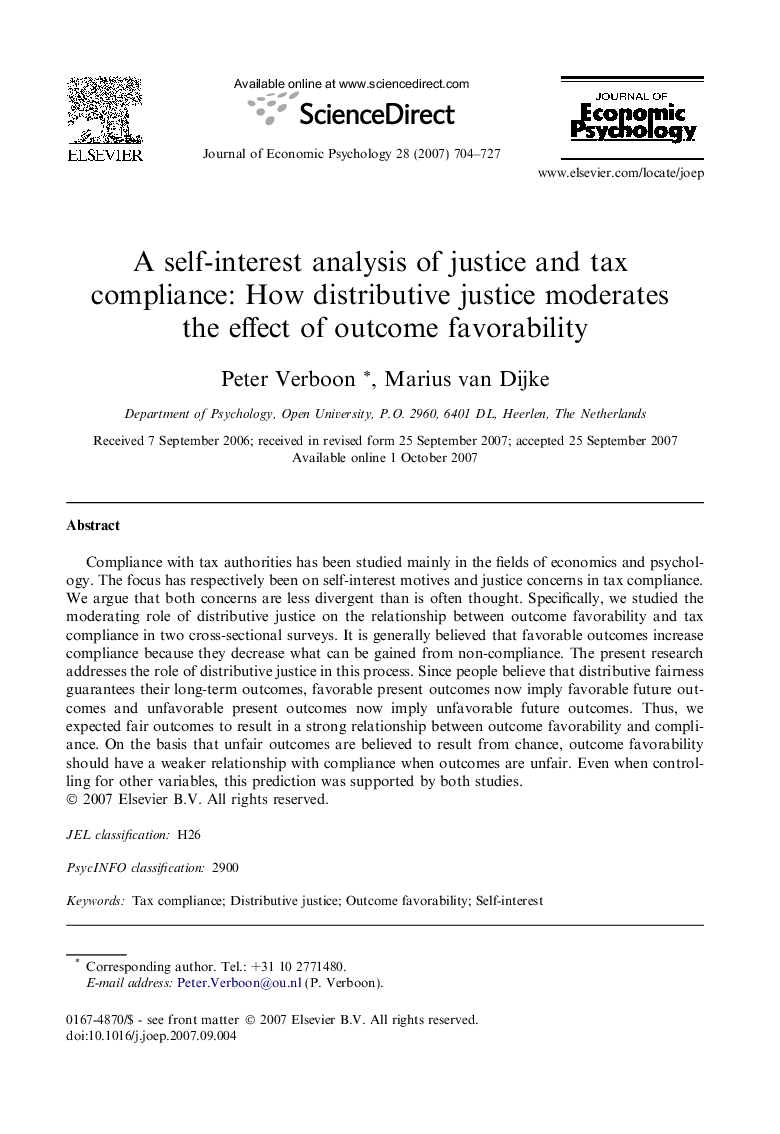| Article ID | Journal | Published Year | Pages | File Type |
|---|---|---|---|---|
| 885458 | Journal of Economic Psychology | 2007 | 24 Pages |
Compliance with tax authorities has been studied mainly in the fields of economics and psychology. The focus has respectively been on self-interest motives and justice concerns in tax compliance. We argue that both concerns are less divergent than is often thought. Specifically, we studied the moderating role of distributive justice on the relationship between outcome favorability and tax compliance in two cross-sectional surveys. It is generally believed that favorable outcomes increase compliance because they decrease what can be gained from non-compliance. The present research addresses the role of distributive justice in this process. Since people believe that distributive fairness guarantees their long-term outcomes, favorable present outcomes now imply favorable future outcomes and unfavorable present outcomes now imply unfavorable future outcomes. Thus, we expected fair outcomes to result in a strong relationship between outcome favorability and compliance. On the basis that unfair outcomes are believed to result from chance, outcome favorability should have a weaker relationship with compliance when outcomes are unfair. Even when controlling for other variables, this prediction was supported by both studies.
